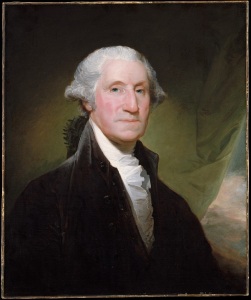The men who designed our Constitution were unusually brilliant members of an unusually brilliant generation.
They were not, however, infallible.
Their greatest failure should be obvious to everyone. (If you do not know to what failure I am referring please seek help immediately. Because there is something deeply wrong with you.)
Of course, that was not their only mistake. Indeed, a decision arrived at by our Founders at the Constitutional Convention in Philadelphia may yet prove nearly as disastrous in its consequences.
In May 1788, as the American people debated whether or not to ratify the new Constitution drafted in Philadelphia the previous summer, Pierce Butler, who had served as one of South Carolina’s delegates to the Convention, wrote a letter to a acquaintance in England in which he discussed one of the Constitution’s more controversial innovations:
I am free to acknowledge that His Powers are full great, and greater than I was disposed to make them. Nor Entre Nous, do I believe they would have been so great had not many members cast their eyes towards General Washington as President; and shaped their Ideas of the Powers to be given a President, by their opinions of his Virtue.
George Washington: The Man Who Would Not Be King
George Washington was a man so resistant to the corrupting temptations of power that his virtue and self control almost beggars belief. When the War of Independence ended in 1783, many expected Washington to use the Continental Army to make himself a dictator or king. Instead, unlike Cromwell (and many others) before him and Napoleon (and many others) after, Washington chose to resign his commission and return to civilian life.

First in War, First in Peace, and First in the Hearts of His Countrymen
It was an act so astounding for its embodiment of classical republican virtue that none other than George III called Washington “the greatest character of the age,” observing, “that act closing and finishing what had gone before and viewed in connection with it, placed him in a light the most distinguished of any man living.”
A half decade later, compelled by a sense of duty, Washington reluctantly allowed his countrymen to elect him as the first president of the United States. Many expected him to remain in office for the rest of his life. Thomas Jefferson, a man who harbored a deep distrust of concentrated power, worried that a mistake had been made in allowing the president to serve a theoretically unlimited terms. Yet he also hoped that the mistake would “remain uncorrected as long as we can avail ourselves of the services of our great leader.” Washington, however, agreed to serve a second term even more reluctantly than he had agreed to serve the first. And when that second term ended, he refused to listen to the entreaties of the many who wished him to remain for a third term.
Often referred to as the “indispensable man,” George Washington’s greatness rests on the fact that he was willing to acknowledge his own dispensability, even when his countrymen were not.
Perhaps George Washington was not the type of man around whom the presidency should have been designed. Powers that might safely be entrusted to a man of his character may not belong in the hands of the average human being (or even in the hands of most average human beings for that matter).
In fairness to our Founders, were it not for the strength with which they imbued the presidency, it might have been impossible for Abraham Lincoln to both correct their greatest error and prevent that error from destroying our republic. (Indeed, when you think about it, it is nothing short of miraculous that in our nation’s hour of greatest peril we were blessed with the leadership of one of the few individuals in human history more virtuous than Washington). It should also be noted that, while the vast majority of American presidents have been middling leaders at best, very few of them were of the type to grossly abuse their power.
Until now…
– P. Sicher
Excellent blogpost thanks so much for sharing .
LikeLike